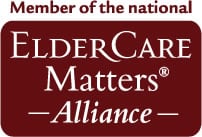
27 Nov Your Loved One is Transitioning to Long-Term Care: Resources for Making the Right Decision
Making the decision to place a loved one in long-term care is a difficult one. There are endless emotions and questions that need to be addressed. To make the process more difficult, family and loved ones often have preconceived notions of what it means to be in a facility. We have all heard a horror story or two of poor care, abuse, or medical malpractice – knowledge that understandably creates hesitancy to allow your loved one to be placed into care. Deciding to place a loved one in a long-term care facility requires thoughtful and logical reasoning.
Making the Initial Decision
Family and friends often struggle with the decision to take away their loved one’s independence. Often, placement also means greater distance from those the resident relies on for companionship and assistance. Family members may feel disloyal; loved ones may feel betrayed. They may feel that they have become incapable of caring for their loved one on their own; loved ones may feel that they are not unwell enough to investigate long-term care options. Some loved ones only need minimal assistance; others may need around-the-clock care.
Some make the decision to move the loved one into care easier than others. In cases where the current caregiver dies and there is no one else to take his or her place, or where various forms of dementia have reached an unmanageable level, the decision to place the loved one into care is less emotionally charged.
However, in cases where the loved one is still capable of managing certain life activities, but not others, the decision-making process becomes a vast pool of factors to be weighed. What the loved one can and cannot do factors heavily into what types of care and facilities will be available to them, or appropriate for them.
Determining the Level of Care Needed
What activities are limited – feeding themselves, dressing themselves, medication management, mobility, capacity, money management? Does the loved one have an illness that requires constant medical intervention – dialysis, IV medication, 24-hour memory care? Is the loved one capable of handling only certain parts of particular activities – they can take their medicine, but forgets to; can they get around pretty well, except on “bad days”?
Skilled Nursing Facilities
Skilled nursing facilities, commonly referred to as nursing homes, are typically what comes to mind when long-term care is mentioned. This type of facility is the highest form of residential care. Generally, eligibility for skilled nursing care (particularly those accepting Medicaid) requires the inability to accomplish activities of daily living without direct or readily available assistance. The primary factors that qualify a person for this type of facility are the inability to fully eat, bathe, or clothe themselves. Commonly, these types of facilities are for those that are significantly impaired – immobility, having to be fed, having serious medical ailments that require specialized medical attention, etc.
Skilled nursing facilities provide around-the-clock medical care, in addition to regular assistance with activities of daily living. These facilities require the presence of medical doctors and licensed nurses, where less intensive facilities are not required to provide such expertise.
Assisted Living Facilities
Those that are able to do self-care tasks sufficiently will find it difficult to qualify for nursing care. Fortunately, loved ones able to complete these tasks, more or less, on their own may qualify for a minimized level of care called assisted living. In these facilities, caretakers take on a less direct role in the care management of the loved ones residing there. Residents typically handle the activities of daily living while staff members provide 24-hour availability for assistance. These communities typically do not offer 24-hour medical services.
Resources for Locating Suitable Establishments
Finding the right skilled nursing or assisted living facility is challenging. With so many options to choose from, it is helpful to have a way of sifting through the possibilities. The following resources provide guidance through comparable results of nearby facilities of different calibers. These resources will help you compare facilities, and narrow down the list to a manageable number of particular facilities that may be best for your loved one.
- Medicare offers a way to compare particular institutions in your area. You will be able to find detailed statistics, health inspection reports, staffing ratios, penalties imposed, and other helpful information.
- A Place for Mom provides guidance from local advisors in many cities. The organization provides information for assisted living facilities, nursing homes, memory care, and more.
- SeniorHomes.com provides resources for locating independent living, assisted living, and more.
- SeniorLiving.org also provides resources for locating various options for elder care.
Evaluating Facilities
It is hard to shake off a tragic story about how a resident at XYZ facility was mistreated, but in the search for suitable care facilities, no stone should be left unturned. Over time, the quality of care for individual facilities may fluctuate. In the time since you heard XYZ’s horror story, that facility may have progressed into one of the best institutions in the state. The alternative applies to the best facilities, as well.
Questions to Ask
Not only should you look to the facility to answer questions, but you should also seek out the opinions of others that may have had a loved one in various establishments. Asking friends, co-workers, or neighbors about their experiences will give you a perspective outside the glamorous claims of the particular facility. If you learn that Facility A had a history of inattentive staff, you need to know what questions to ask at the facility and what signs to look for in their care history. Check online reviews and with the Better Business Bureau.
Once you have decided that a facility may be the right fit for your loved one, make an appointment to go for a tour. This will give you the opportunity to ask questions, see the grounds, check out activity schedules and areas, see how clean the facility is kept, and see the potential room that your loved one may be in. Most importantly, a visit will give you the chance to see, and possibly talk to, the current residents to learn what their quality of life is while living at the facility. It is not unreasonable to show up for another visit without calling ahead, but keep in mind that they may not have as much time as when you set up a formal visit. These surprise visits can give you insight on how things appear when the facility is not forewarned they will be showing off the property.
When speaking with the facility directly, no question is off limits. Any reasonable question asked should be returned with a polite and educated answer. Questions to begin with:
- Who are the doctors and other staff that will care for your loved one? Does this rotate or will your loved one consistently have the same caretakers?
- Does your loved one’s current primary care doctor come to this facility? If not, does the facility provide transportation to appointments?
- Is there access to physical therapy at this facility? How about chiropractors or acupuncturists?
- How is preventative care handled?
- What are the facility’s policies on vaccinations (like flu shots) or use of antipsychotics for dementia patients?
- What types of meals do they offer? (Asking to see a menu can be very helpful)
- Are there community activities? Does the facility provide transportation to outside activities?
- What is the culture like?
- Are religious services offered?
The Centers for Medicare and Medicaid Services provides a useful checklist for facility interviews.
Things to Look For
Be very observant when you visit these facilities – this is potentially where your loved one will live out the rest of their years. Your personal impression of the facility is paramount to any raving statistics or reviews that you might find.
- Look at the cleanliness of the facilities, the activity rooms, the dining areas, even the tidiness of the nurse’s stations.
- Does it look like it is well maintained – no chipping paint, bubbling wallpaper, unstable dining tables, poor lighting or burnt out lightbulbs?
- Does the nursing staff appear to enjoy their job, or do they look like they are only there for the paycheck?
- On your tour, does the guide barge into resident rooms to show you the amenities, or do they knock and wait to go in?
- Are there places to walk outside, places to sit and enjoy the outdoors, or enough shade to endure it?
- What about the residents – do most of them look happy, or at least content, or do many of them appear sad or depressed?
- Try to talk to a few residents. Ask them how they like living there – if they are treated well, if there is much to do, you might even ask how the food is.
Possible Alternatives
Medicaid provides services outside of residential facilities as well. Depending on your state, you may be able to set up community-based services to help your loved one continue to live independently. There are also various volunteer organizations that can provide free or low-cost services to your loved one in their home. You can also get more information on options from your loved one’s doctor, a hospital social worker, or a hospital discharge planner. These organizations and individuals may be able to provide guidance on:
- In-Home Care
- Home Health Nurses and Physical Therapists
- Meal Preparation Services
- Medication Reminder Assistance
- Shopping
- Transportation
- Social activities
- Helping with finances or legal activities
Some organizations to contact about alternatives to residential facilities:
- Area Agency on Aging – individual locations and programs are available in every state
- Medicare Programs
- Medicaid Programs
- Aging and Disability Resource Center
- Center for Independent Living Options
- National Association for Home Care & Hospice
- National PACE Association.org.
Living with Relatives
For some families, relocating parents or grandparents into your home is common practice. But, the option is not right for everyone. In considering this option, you must evaluate whether you are capable of providing the level of care that your loved one needs. Do you have access to transportation to get them to and from appointments? Do you have a job that would conflict with their care? Is your home equipped with safety devices, or are you willing to put forth the expense to provide them? Are you able to provide your loved one with their specific medical needs? Do you have space in your home? Can you afford the added expense? Would your loved one be embarrassed if they needed you to help them in and out of the tub or shower – or to help them dress? How does your loved one feel about the idea in general? There are many questions and scenarios to consider when deciding if it is best for your loved one to move into your home.
In Sum
More than 1.4 million Americans currently reside in a nursing home. The decision regarding how to obtain the best care for a loved one and where that loved one should live can be complex and tedious. It is important for friends and family to arm themselves with the information and skills necessary to weed through the options and make an informed decision.
Once you have made the decision that it is time for heightened assistance, knowing what to look for and what questions to ask is only the beginning. Finding a suitable facility requires a lot of research and a bit of investigative prowess. You will find that the right place will feel like a home, rather than an institution. Finding the right place for your loved one will provide both of you with the comfort that your loved one will continue to lead a happy, healthy, and safer life.
Gary Crews Law in Tulsa, Oklahoma
At Gary Crews Law in Tulsa, Oklahoma, we will answer all your questions about transitioning your loved ones into long-term care. We are here to help. Call (918) 493-3360 today for a free, confidential consultation.







